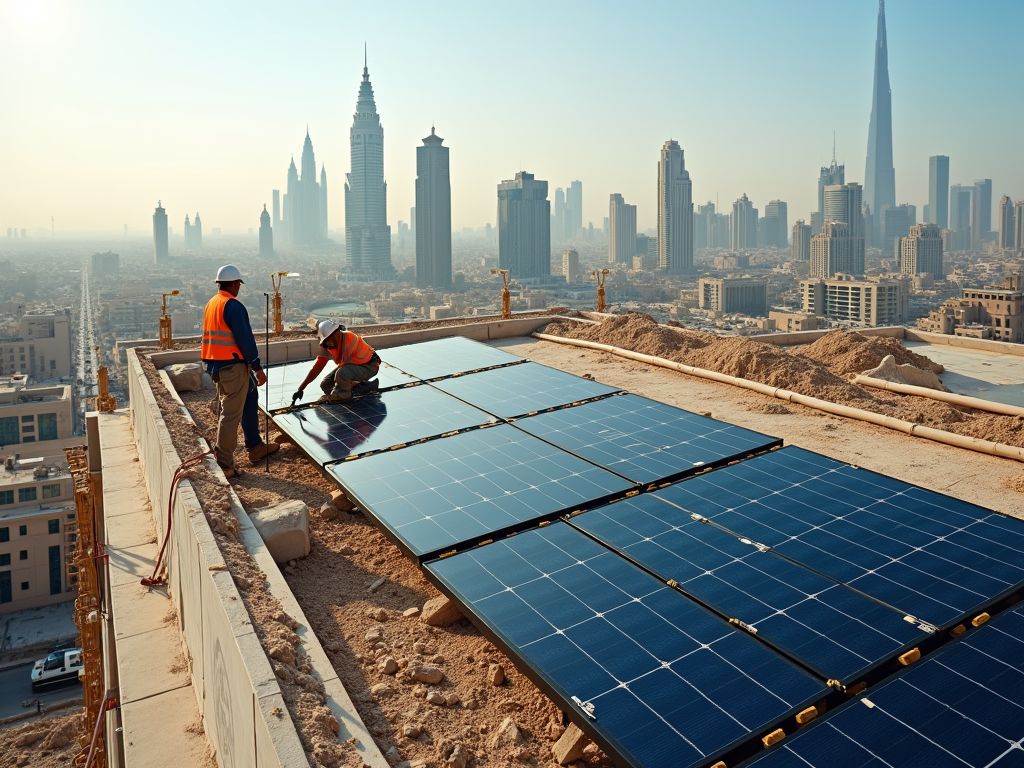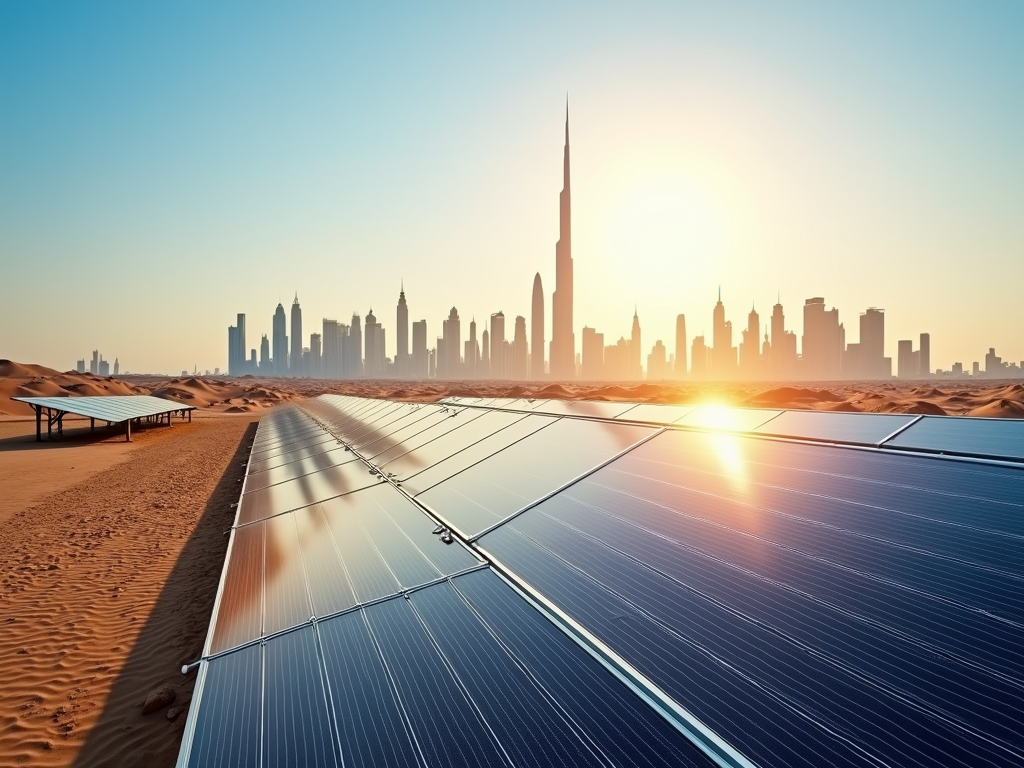Dubai’s renewable energy sector is on the rise, presenting numerous business opportunities for local and international investors. The UAE government has set ambitious targets to diversify its energy sources, aiming for sustainability and innovation. This growth is underpinned by initiatives such as the Dubai Clean Energy Strategy 2050 and substantial investments in solar power projects. By tapping into this rapidly expanding market, businesses stand to benefit from favorable policies and incentives tailored to enhance renewable energy development. In this article, we delve into the business opportunities within Dubai’s renewable energy sector, exploring the underlying trends and potential ventures available.
Government Initiatives and Investments

The foundation of Dubai’s renewable energy growth is strongly supported by government initiatives. The Dubai Electricity and Water Authority (DEWA) has pledged a significant increase in investments towards renewable energy. Key initiatives include:
- Dubai Clean Energy Strategy 2050: This ambitious plan aims for 75% of Dubai’s energy to come from clean sources by 2050.
- Mohammed bin Rashid Al Maktoum Solar Park: Once completed, this colossal solar park will be one of the largest of its kind globally, with a target capacity of 5,000 MW.
- Green Economy for Sustainable Development: This initiative seeks to transition the economy towards sustainable practices, further enhancing opportunities in renewable sectors.
Moreover, the government is creating a favorable regulatory environment that encourages foreign investment and innovation. These initiatives not only ensure a continuous influx of funds but also create a conducive ecosystem for start-ups and established businesses to thrive in the renewable energy landscape.
Emerging Technologies and Trends

The renewable energy sector in Dubai is marked by rapid technological advancements. Autonomous systems and artificial intelligence (AI) are increasingly playing roles in energy management and efficiency. Notable emerging technologies include:
- Solar Photovoltaic (PV) Systems: Innovative solar technologies are becoming more efficient and cost-effective, driving down the prices for both businesses and consumers.
- Energy Storage Solutions: Battery technologies are evolving, ensuring a stable energy supply regardless of weather conditions or peak demand times.
- Smart Grids: The implementation of smart grids enables better energy distribution and management, thereby improving efficiency at both consumer and grid operators’ levels.
Additionally, the ongoing research and development in sustainable materials and methods position Dubai as a leader in clean technology innovations. Businesses that adapt to these trends and invest in such technologies will likely see lucrative returns as the demand for these solutions continues to rise.
The expansion of Dubai’s renewable energy sector presents various business opportunities. Potential areas of investment include:
- Renewable Energy Consulting: Providing expertise in energy solutions and efficiency can help businesses align with government regulations and sustainability goals.
- Solar Installation Services: With the demand for solar energy rising, starting a business focused on the installation and maintenance of solar panels offers great potential.
- Energy Efficiency and Management Technologies: Developing software solutions that assist businesses in monitoring and optimizing their energy usage can be a lucrative venture.
- Green Financing: Providing financial services to support the development of renewable energy projects expands the funding landscape for budding initiatives.
Moreover, public-private partnerships could be an effective way to leverage resources, harness innovation, and accelerate growth in this sector. With Dubai’s commitment to sustainability, the opportunities for businesses are only set to increase in the coming years.
Conclusion
In summary, Dubai’s growing renewable energy sector is fraught with potential for businesses willing to invest and innovate. With strong government backing, emerging technologies, and numerous avenues for investment, the market is ripe for exploration. Entrepreneurs and established companies alike can benefit from capitalizing on these expanding opportunities as Dubai continues its journey towards a sustainable energy future. With strategic planning and adaptation to market needs, businesses can not only contribute to Dubai’s clean energy goals but also enjoy substantial growth and profitability.
Frequently Asked Questions
1. What are the main renewable energy sources being developed in Dubai?
The primary renewable energy sources under development in Dubai include solar energy, wind power, and energy from waste. Solar energy, especially, is a focal point, with significant investments in solar parks throughout the emirate.
2. How does the Dubai government support renewable energy businesses?
The Dubai government supports renewable energy businesses through grants, subsidies, and favorable regulations. Initiative frameworks like the Dubai Clean Energy Strategy 2050 are designed to align with business interests to propel clean energy goals.
3. What technology trends should businesses watch in the renewable energy sector?
Businesses should pay attention to advancements in solar technology, energy storage solutions, and smart grid systems that facilitate efficient energy management and distribution.
4. Are there specific industries that can benefit most from renewable energy solutions?
Industries such as construction, hospitality, and manufacturing can greatly enhance their operational efficiency and reduce costs through the adoption of renewable energy solutions.
5. What barriers do businesses face when entering Dubai’s renewable energy market?
Challenges may include navigating regulatory frameworks, the high initial investment required for technology deployment, and competition with established players in the market.
